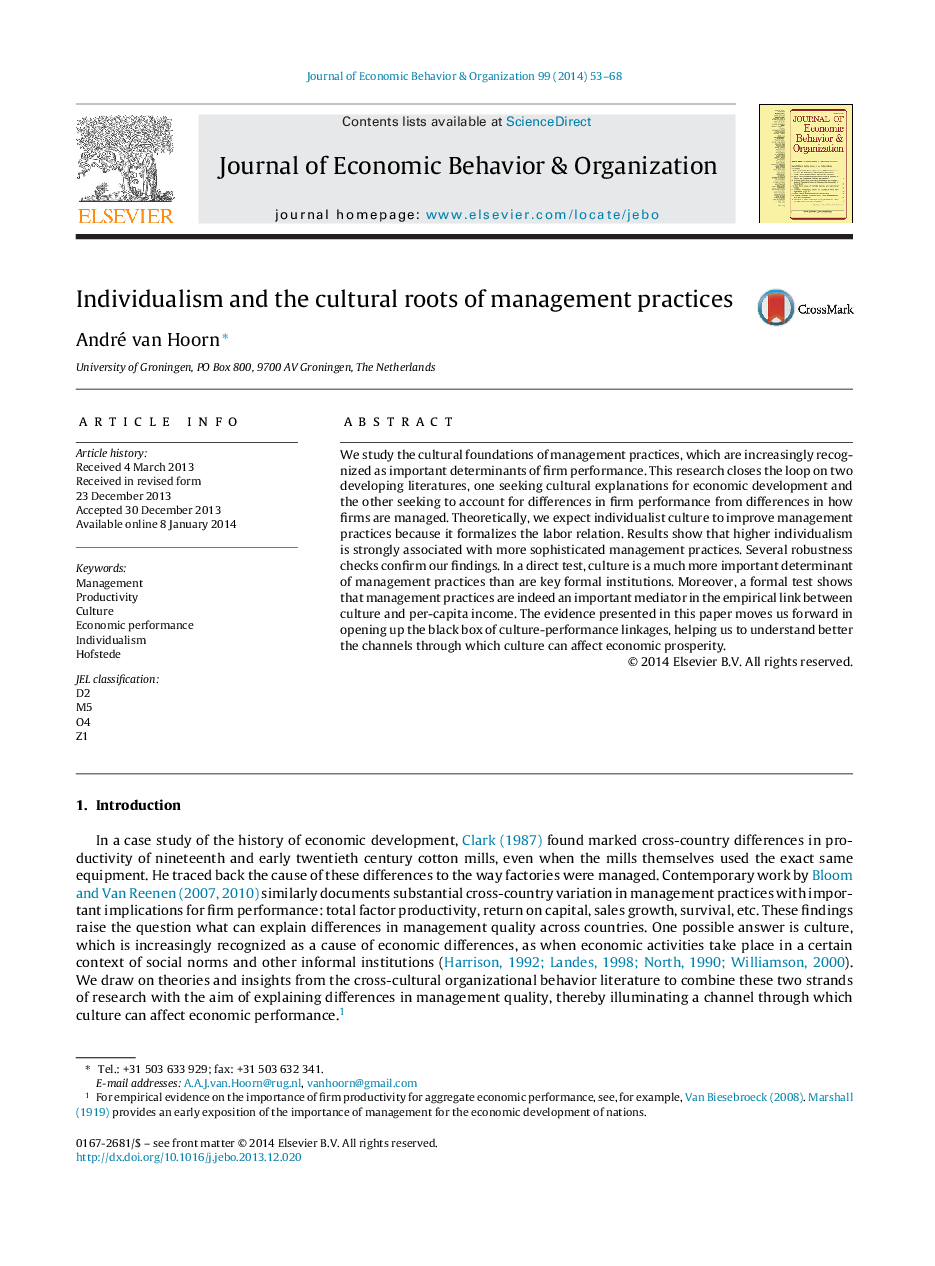| Article ID | Journal | Published Year | Pages | File Type |
|---|---|---|---|---|
| 7243574 | Journal of Economic Behavior & Organization | 2014 | 16 Pages |
Abstract
We study the cultural foundations of management practices, which are increasingly recognized as important determinants of firm performance. This research closes the loop on two developing literatures, one seeking cultural explanations for economic development and the other seeking to account for differences in firm performance from differences in how firms are managed. Theoretically, we expect individualist culture to improve management practices because it formalizes the labor relation. Results show that higher individualism is strongly associated with more sophisticated management practices. Several robustness checks confirm our findings. In a direct test, culture is a much more important determinant of management practices than are key formal institutions. Moreover, a formal test shows that management practices are indeed an important mediator in the empirical link between culture and per-capita income. The evidence presented in this paper moves us forward in opening up the black box of culture-performance linkages, helping us to understand better the channels through which culture can affect economic prosperity.
Related Topics
Social Sciences and Humanities
Economics, Econometrics and Finance
Economics and Econometrics
Authors
André van Hoorn,
